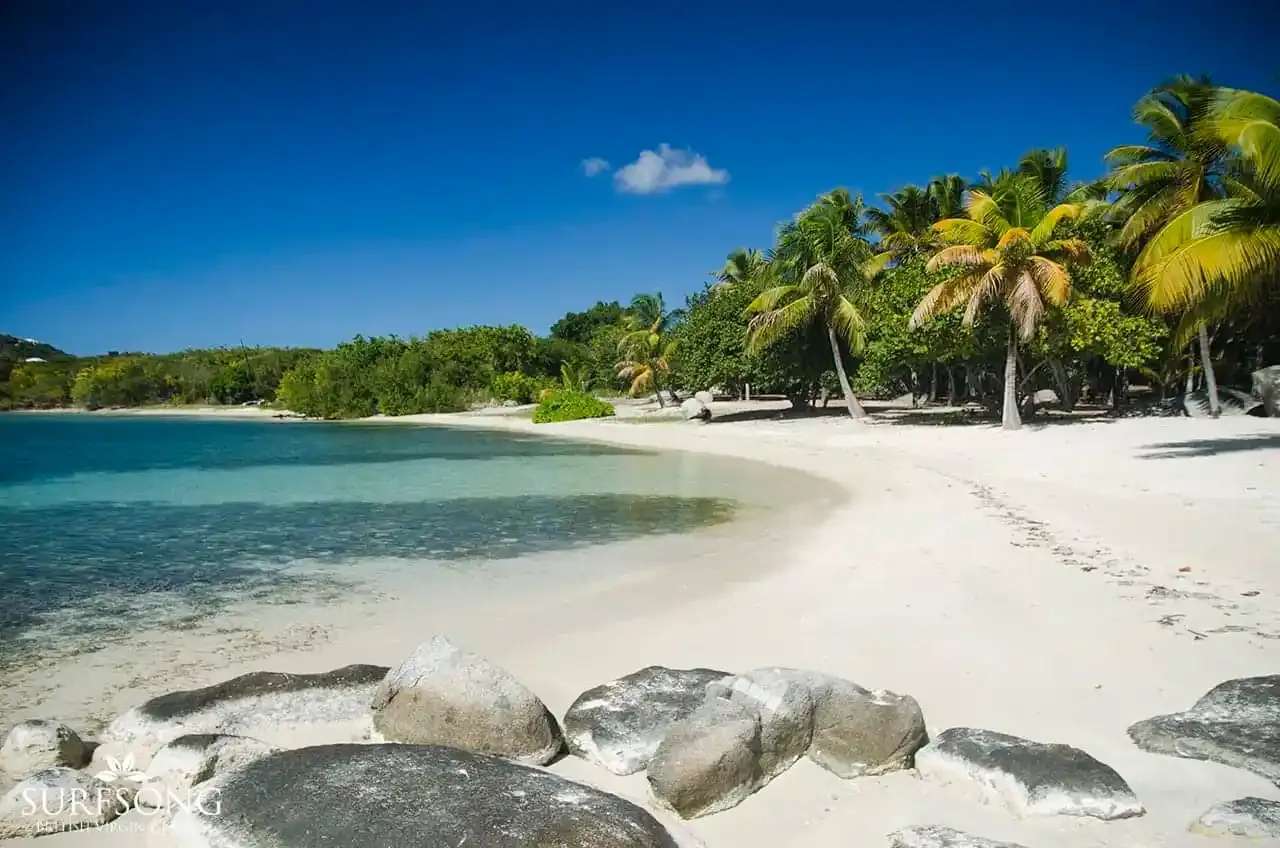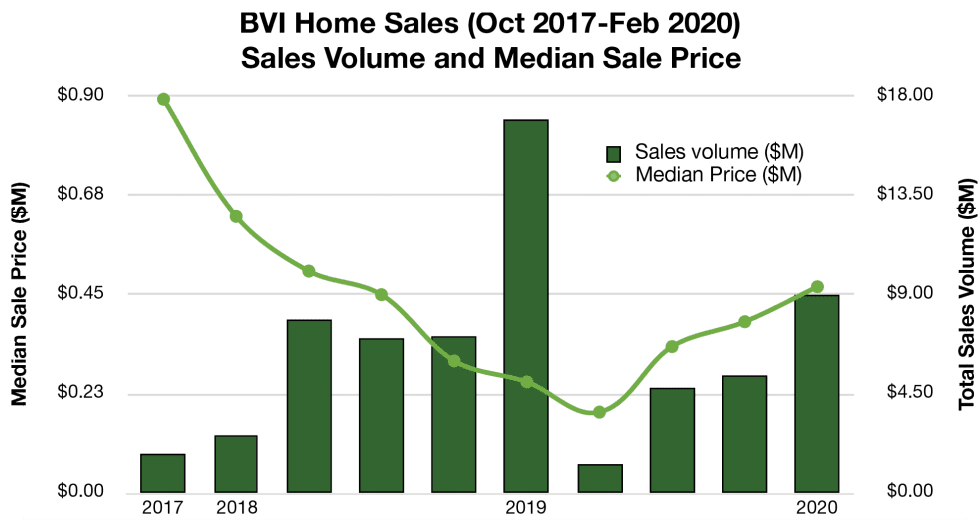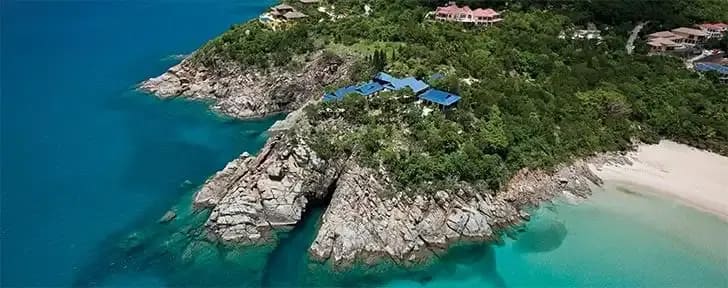At times in the BVI it is easy to feel disconnected from the rest of the world as our pace and quality of life can be far away from the hustle and bustle of larger communities. However, we are reminded just how connected we are as we face the shared challenge of containing and mitigating the spread of COVID-19. During these unprecedented times, our thoughts are with our clients and friends here and across the globe as we work together to overcome the spread of the virus. We are looking forward to welcoming everyone back to the islands as soon as possible.

Covid-19 Timeline for the British Virgin Islands
The BVI borders will remain closed to incoming passengers until the 2nd June, 6am.
Each person in the BVI must follow the safety protocols that have been set by the Ministers. Everyone is required to wear a protective face mask in public & businesses must have hand washing facilities or sanitizer on entry. In public places (outdoors and well as banks, supermarkets etc) we must stand 6ft apart at all times.
-
14 March Cruise ships banned from entering the British Virgin Islands.
-
23 March BVI closed their borders
-
25 March BVI confirmed their first two cases of Covid-19 in the BVI
-
27 March Cabinet approves a 24hr lockdown of the Territory
-
2 April The 24hr lockdown ends for three days to buy food supplies
-
5 April New 24hr 2-week lockdown restarts at 9 pm.
-
16 April BVI reports another positive case of Covid-19
-
18 April The Territory sadly reports its first death from Covid-19
-
24 April Health Minister Carvin Malone reports two more active cases in isolation at the Dr D Orlando Smith Hospital in Road Town.
-
25 April 189 persons in quarantine in the Territory.
-
27 April Cabinet decided that a curfew will remain in place between 1 pm to 6 am. People are free to exercise and shop for essentials only during this time
-
5 May 7th Covid-19 case confirmed in the BVI
-
10 May New 7pm – 6am curfew will start, and all businesses are able to operate providing they adhere to the protocols set by the Government.
-
10 May The public were able to access the beaches again.

BVI Property Market
As we approached the start of 2020, the BVI property market was demonstrating clear signs of recovery following the devastating impacts of Hurricane Irma in September 2017. As the post-Irma market with the sale of mainly damaged homes gave way to the sale of undamaged or repaired homes during the course of 2019, the 2019/20 high season was much anticipated to see whether significant interest from overseas investors would return.
The impact of the coronavirus pandemic on the social and economic fabric of all corners of the world only truly emerged in February as the first confirmed cases of the virus started to move out of the Far East. At the start of May, as much of the world is emerging from lockdown and economies are starting to turn, questions are asked as to the impact of this pandemic on the economy, and real estate markets, both internationally and regionally. With the benefit of hindsight, many positives emerged from the fall-out of Hurricane Irma, although it is also remembered that some lost loved ones or had businesses and buildings damaged from which they never recovered.
Once the initial shock wore off, the rebuilding of the BVI commenced, driven primarily by investment generated by insurance claims which started to filter into the economy from the end of 2017. There followed two years of growth in the construction sector, as buildings were reconstructed primarily in the private sector. Lessons were learnt and an ageing building stock was, for the most part, re-built to modern standards and, hopefully, better able to withstand the ravages of the hurricane season.
Between October 2017 and February 2020 There Was a Total 128 House Sales
-
65% of the house sales were below $500,000 and 90% below $1.0M
-
One sale above $3.0M (Oil Nut Bay)
Belongers/BV Islanders Acquired
-
89 houses (70% of all houses)
-
In total, spent $35.2M on purchasing homes
-
The median purchase price was $300,000
Non-Belongers Acquired
-
39 houses (30% of all houses)
-
In total, spent $28.8M on purchasing homes
-
The median purchase price was $522,500
Very quickly, post-Irma, there were signs that a new market was emerging. For many foreign property owners, the devastation of their homes in the BVI was matched by the difficult conditions in the months that followed the hurricane, when communications were down and arranging even the most simple repairs was difficult.
For many overseas-based owners, the most practical decision was to take whatever insurance settlement they could negotiate and sell their property “as is”. Very quickly, as local investors recognized the opportunity to acquire damaged properties within an affordable price range, property transactions increased significantly until the first quarter of 2019 by which time the majority of damaged properties had been sold.
The statistics from this post-Irma market are stark, with a market dominated by local investors as overseas investors, for the most part, withdrew from purchasing in the BVI.
Chart 1 provides data between October 2017 and February 2020 demonstrating how the median price of houses sales continued to fall through Q2 2019 as the volume of damaged house sales increased, with sales peaking in Q1 2019. By mid-2019, the market for damaged homes was slowly being replaced by sales of undamaged or repaired homes, as reflected by the increased median sale value after Q2 2019.

The impact of the development of Oil Nut Bay on the real estate market in the BVI cannot be under-estimated. Commencing development in 2009, just when the economic recession was stifling property development elsewhere in the Caribbean, the resort has performed steadily over the years, continuing to sell lots to international investors and now also recording some of the first resales of developed villas within the resort. When deciphering the data generated by local advertising, it is also important to see, over time, what percentage of adverts translate into sale.
Looking at the same advertising data from the BVI Beacon between August and December 2018, 100% of the sales advertised at Oil Nut Bay proceeded to completion, compared to 38% for all property types elsewhere in the BVI. More significantly, the average time to complete a sale at Oil Nut Bay was just under six months, compared to just over twelve months for all other villas sales in the BVI.

While the future of the real estate market is uncertain, simply due to travel restrictions imposed on people internationally, there is certainly not the sense of doom and gloom that might have been expected. Potential international purchasers continue to remain active, buoyed by the sense that once travel restrictions are lifted, securing a second (or third) home in the Caribbean makes sense not just as an investment but also as a more favorable location to isolate.
In addition the local market remains active, with both residents and belongers using these quieter times to research what is available and now that we are operating more freely, viewings are taking place once more and offers are being made. An initiative by the BVI Government has been announced in the last few days which would waiver the stamp duty for Belonger buyers (4% of the sales value) and that has already given a boost to property enquiries. Full details of this are expected over the coming weeks.
Short-term Rentals in the BVI
With more than 500 rental villas across the archipelago, the revenue generated from short term rentals for the BVI is significant. Owners are having to prepare for a loss in revenue over the summer and are exploring a way to reduce operating costs. Some are considering renting on a longer-term basis, but that is now a saturated market, others will leverage from the empty months by doing building works and upgrades. In the main, the guests who could not travel have opted to postpone rather than cancel, which is positive. Villas are being as flexible as possible about re-bookings and have added additional security, adapting their our booking terms to honour full refunds should clients find themselves unable to travel in the future due to the virus.
Smiths Gore is working closely with The BVI Tourism Board. They turn 50 this year, and they will celebrate by launching a ‘Staycation’ campaign to encourage islanders to enjoy the paradise on their doorstep. Unique discounted rates will be offered by some villa owners to reflect the current economy and to enable the BVI community to experience these charming properties for themselves to give a welcome reprieve from home isolation. Although bookings and enquiries are down, we are still securing interest and are hopeful that the BVI will prove to be the perfect location to find recovery and restoration from the COVID-19 experience.

Long Term Rentals
In the last 24 months, there has been a steady flow of properties returning to the market, fully modernised and renovated post-Irma which has elevated the standard of the BVI rental portfolio. The BVI now offers an impressive and diverse choice for families, business professionals and young graduates and demand in the last few years has been steady and buoyant.
However recent events have already made this a much more competitive market. With no new arrivals currently entering the territory and with some short term vacation properties temporary transitioning into the long term rental marketplace, prospective tenants now have a great deal to choose from. If landlords want to maintain rental values they need to be proactive and ensure that their properties are well equipped and maintained and furnished to a high standard as tenants will be expecting more in return for their investment. Home working will become more popular on an ongoing basis and creating a work space will have appeal.
If landlords are not in a position to make investments it is certainly the time to be flexible on price. The market will balance itself out again, there are clients from the States and Europe who hope to relocate to the BVI as soon as they are able but landlords need to be prepared to adapt to remain competitive.

Property Management
Property Management has seen a sharp increase in demand over the last month as absent owners need a team on the ground to help care for their homes. Property owners (either independently or through their property management companies) need to take stock and prepare for the possibility of ongoing and/or future curfews and hurricane season is approaching.
Now it the time to ensure generators are working, plumbing and septic tanks are cleaned and gas tanks and cisterns are full to eliminate the stress and anxiety that these issues can cause during a lockdown or storm. Back up plans should be put in place for when gardeners and pool maintenance teams cannot get to site. If remote or off the beaten track it makes sense to install signage at road turnings and property entrances to assist the delivery drivers who are becoming more integral to our day to day lives.
With tenants spending considerably more time at home, Landlords are likely to find themselves handling an increased number of maintenance requests. When anyone enters a property we all need to join forces to encourage and help contractors to follow Covid-19 guidelines. Protocols are needed wherever possible and practicable with contractors wearing masks and gloves, removing shoes before entering a property and washing hands on arrival and departure.
What’s Going on in the BVI Community?
The BVI recently undertook a three week 24hr lockdown to combat the spread of the virus amongst our small community. During this time the government ministers promoted sustainability and created the scheme WE RECYCLE and shared the benefits of taking this downtime to properly prepare containers and materials for recycling. The curfew was partially lifted on Monday 27th April and all hands were on deck to process the waste. As of the 10th May, the BVI Ministers have confirmed our new 7pm – 6am curfew and all businesses are able to operate providing they adhere to the protocols set by the Government. This additional freedom allowed for the scheme to increase their productivity.
“There’s at least one drop-off point in every village now,” said Sarah Penney, the deputy director of Green VI, a non-profit organisation that promotes sustainability in the Virgin Islands.
Before the lockdown, there were seven recycling drop-off points on Tortola and ten on Virgin Gorda. During the lockdown, the volunteers that built and installed the recycling boxes were deemed essential workers. There are now forty six locations to drop off your materials across the BVI!
“The bins themselves are made from reused materials, treated shipping pallets that would have otherwise been burned. It takes about 14 pallets to craft each bin” said the BVI Beacon.
This is a huge step forward for the British Virgin Islands and they are promising permanent features in our community.


Art From Home
10 of the best virtual museum experiences in Europe.
Since we have mostly been confined to our homes over the last few weeks and months, the British Museum, the Louvre, the Uffizi and more are now bringing their treasures into your world.





